Building Bridges
- This Issue
- June 29, 2023
- 18 minutes read
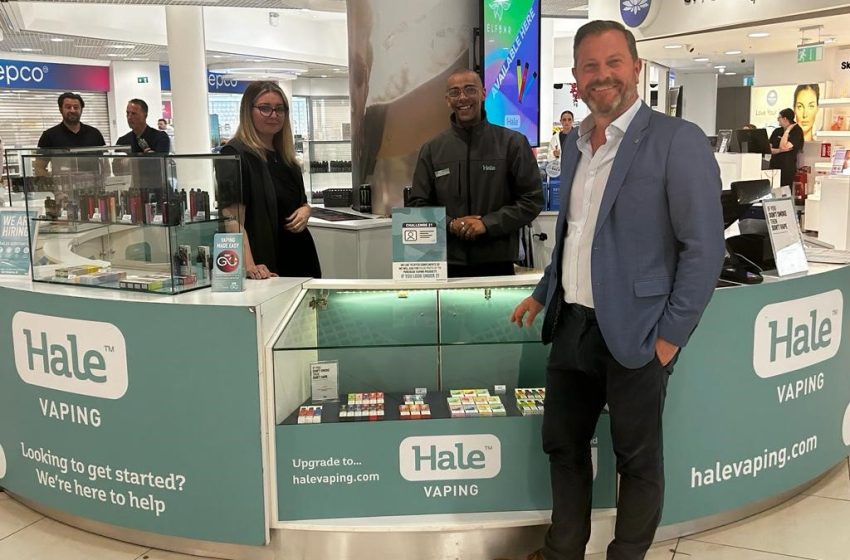
Nigel Hardy (right)
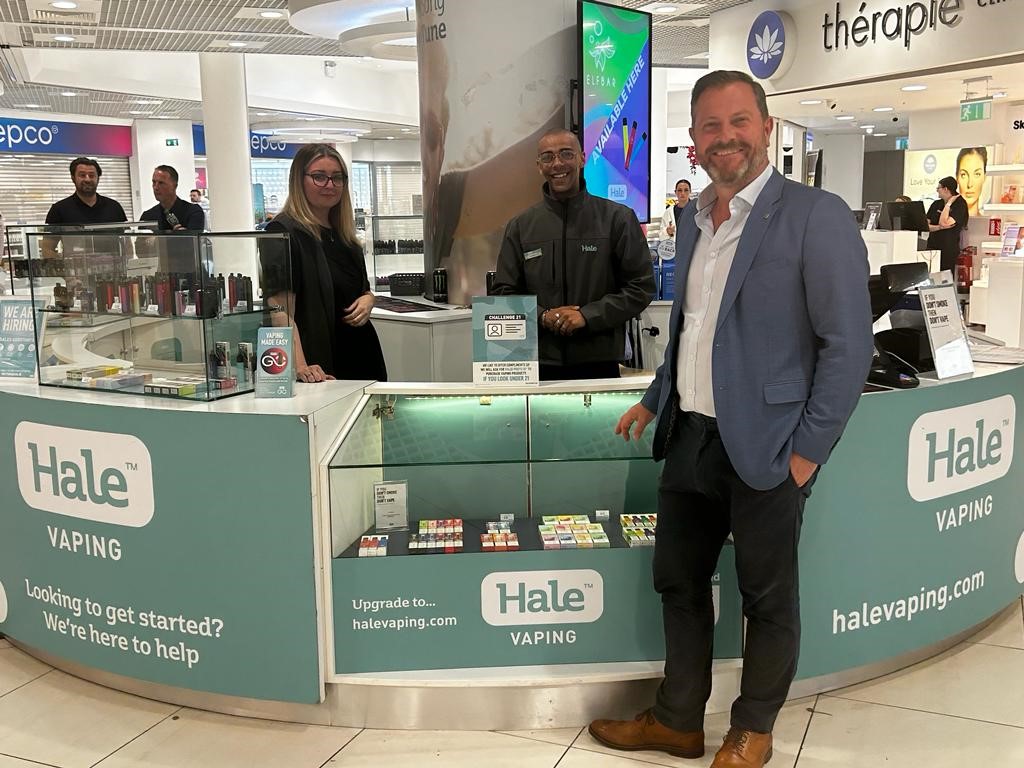
Plxsur plans to build the largest and most responsible group of independent vaping companies.
By Timothy S. Donahue
The vaping industry is famously fragmented. It’s a difficult market for standalone businesses to operate. When a group of friends and former business associates started looking back on the industry, they came to believe that to “shape the future” of the vaping industry a company would need a multimarket presence. It would also need the knowledge and ability to embrace the local culture and make management decisions.
In 2021, Plxsur was created by David Newns, Charlie Yates and Nigel Hardy. The entrepreneurs began discussing their shared vision for the vaping industry. They wanted to begin the journey together by committing to the idea that success would come only by respecting and embracing entrepreneurship without suffocating management teams on the local level. The plan was to build the largest and most responsible group of independent vaping companies around the globe.
The new company aims to improve the businesses it brings on board by focusing on three integral pieces of business strategy: governance, compliance and reporting, according to Hardy, CEO of Plxsur. Compliance encompasses many facets. It boils down to following the rules in the countries and communities Plxsur businesses operate—rules relating to regulatory compliance, communication and marketing compliance and legal compliance, both from a finance and jurisdiction basis.
Governance, according to Hardy, is a focus on improving business processes, particularly around strategy. “Many entrepreneurial businesses are very trading-focused and have a relatively short-term tactical focus within their markets. We believe we can add a lot more strategic focus in terms of where to take these businesses over the next five [years] to 10 years. We have established a simple strategy, which is build, grow and drive,” explained Hardy, adding that that is the stage where Plxsur currently stands. “We’re building and bringing several different companies into the group. We are currently at eight and close to reaching nine.”
Reporting is about being transparent. Management teams must be clear and concise when reporting from within their organizations, especially from a performance management perspective, according to Hardy. “When bringing together a group of independent companies, it’s important that we can report at group level the dynamics of the group and the key variables, business planning processes, the usual disciplines that you would see across a multi-company group of independent companies,” he said. “That’s all about raising the bar with Plxsur standards. And we’ve established a set of Plxsur standards that we believe will start to shape and push those higher standards across the industry at a global level.”
Getting busy
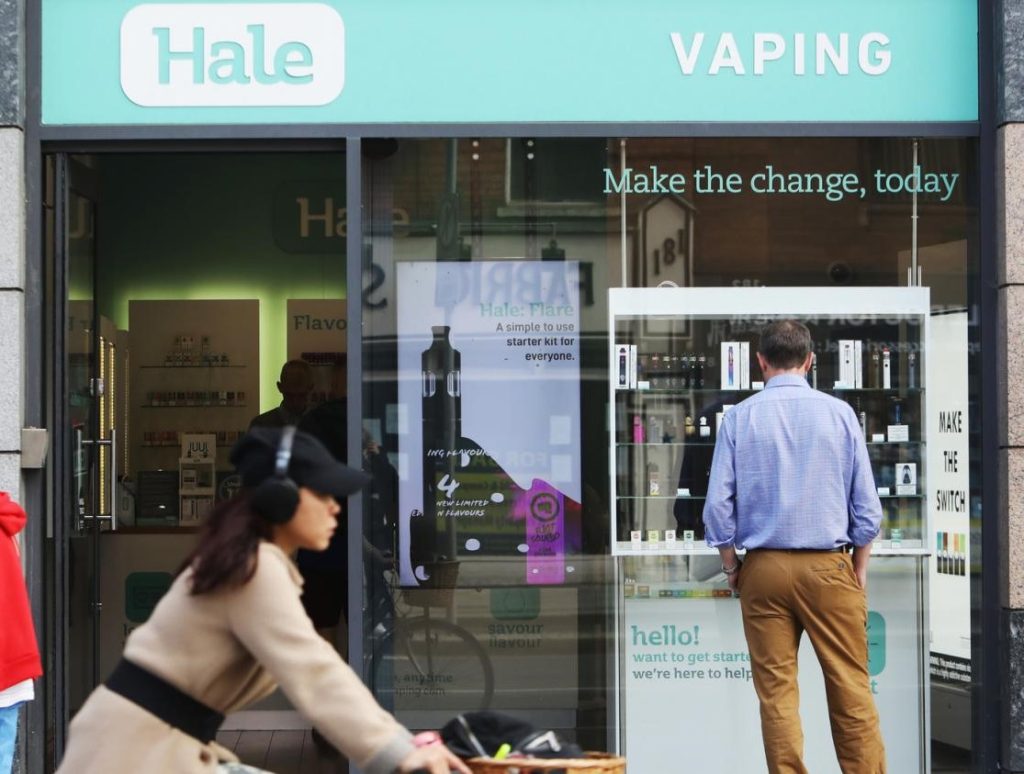 The first companies Plxsur acquired were in Europe. Plxsur now has a presence in Greece, Ireland, Italy, Latvia, the Czech Republic, Benelux, the Netherlands and Belgium. The company recently made its first move outside of Europe with the acquisition of Vape Empire in Malaysia. Plxsur’s purpose is not to purchase the largest possible number of companies but to instead maximize its positive impact on the industry. In its first phase of development, the company is aiming big. The goal is to build a vaping business with a turnover of $1 billion, according to Hardy.
The first companies Plxsur acquired were in Europe. Plxsur now has a presence in Greece, Ireland, Italy, Latvia, the Czech Republic, Benelux, the Netherlands and Belgium. The company recently made its first move outside of Europe with the acquisition of Vape Empire in Malaysia. Plxsur’s purpose is not to purchase the largest possible number of companies but to instead maximize its positive impact on the industry. In its first phase of development, the company is aiming big. The goal is to build a vaping business with a turnover of $1 billion, according to Hardy.
“We’re thinking big in terms of our influence across the world. But the reality is it’s a constant circle, and we go into build, grow and drive. ‘Build’ is where we are now. ‘Grow’ is where we focus on cross-pollinating the good bits in all the businesses—whether that be capability and brand or propositions—so we can create commercial opportunities by getting the companies to work together,” he said. “It’s so fantastic because it’s entrepreneurs. We can put these entrepreneurs in a room. The ideas they come up with in terms of how they can work together to unlock further growth is fantastic.”
Those group discussions often include sharing best business practices in terms of compliance, regulatory challenges, learnings from different regulatory structures across different markets and how to best adapt for other businesses that might have impending regulatory changes in the areas they operate. Hardy said this helps mitigate the regulatory shock that a standalone business may experience if there was a particular regulatory direction coming their way.
“They have that capability, resources and experience across the group. And then the drive stage is where our groups start to compete effectively at a local level. It’s a constant circle because our strategy is to go again next year. We build on the existing platform that we’ve built in phase one and continue to bring businesses in that we can improve in terms of raising standards across the three pillars in terms of compliance, governance and reporting,” Hardy said. “There’s an underlying growth assumption in terms of the business organically as we serve the needs of the billion-plus smokers that are looking for reduced-risk alternatives around the world.
“That’s the reason we established the business. We have great experience with Newns as a business builder, myself [Hardy] as an operator and growth driver and Yates with his M&A experience. We’ve got a team of cofounders who can create what we’re doing already. And we’re delivering. The pace is astonishing, quite frightening at times.”
Team building
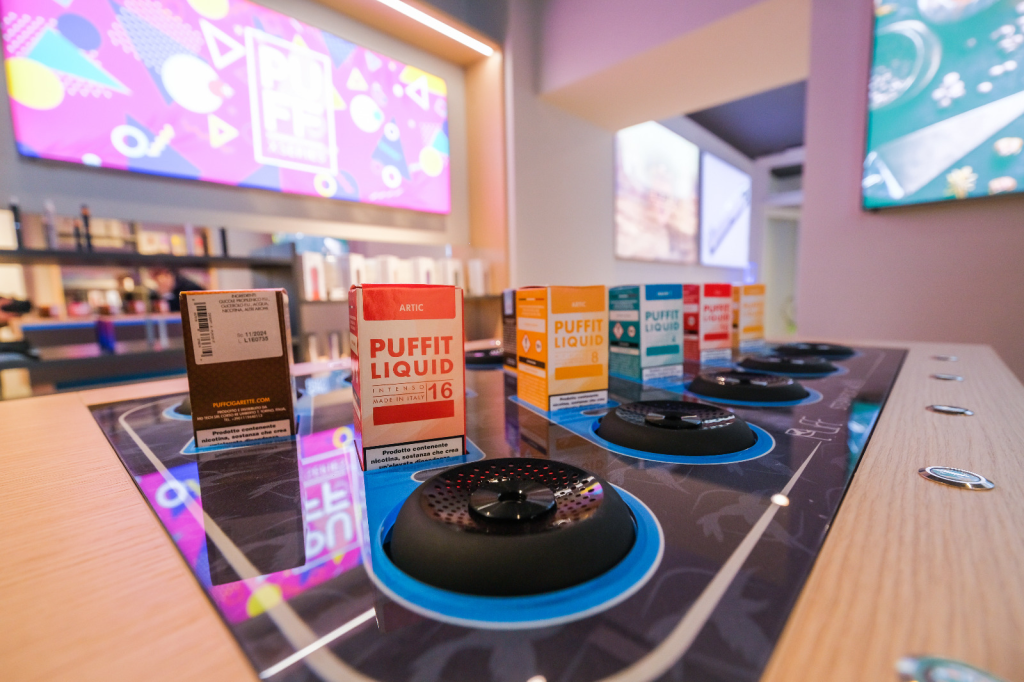 The businesses that Plxsur chooses to team with must meet certain criteria. The first benchmark is leadership. That’s leading either in their channel—for example, business-to-business or business-to-consumer—or they are leading in their market. Hardy said all the current Plxsur partners have a leading position in the markets in which they operate. The second benchmark is having a healthy balance of owned brands within the portfolio. Hardy said that the company wants at least 50 percent of its revenues to be driven by company-owned brands. The third one is the most important: People.
The businesses that Plxsur chooses to team with must meet certain criteria. The first benchmark is leadership. That’s leading either in their channel—for example, business-to-business or business-to-consumer—or they are leading in their market. Hardy said all the current Plxsur partners have a leading position in the markets in which they operate. The second benchmark is having a healthy balance of owned brands within the portfolio. Hardy said that the company wants at least 50 percent of its revenues to be driven by company-owned brands. The third one is the most important: People.
“When you bring in businesses, then you invest in people, and it’s really important that we have a really capable management team with a track record of delivering growth and a team with plans for the continued trajectory of growth over the coming years,” explained Hardy. “It’s important that we have smart, motivated entrepreneurs who are proud to be part of Plxsur. They need to truly embrace the benefits of being part of the team in terms of what Plxsur can add in terms of value to their business.”
Having strong businesses and quality leadership means nothing without teamwork. All Plxsur’s management teams must have the ability to collaborate. For example, during World Vape Show Dubai in June, the company will put together a workshop for the attending teams. Together, the entrepreneurs will identify potential growth opportunities across the group, according to Hardy.
“What problem are we trying to solve, and what capability have we got in the group of companies that we can then share and give access to? The same with regulatory engagement and regulatory compliance,” said Hardy. “Everybody has a story or an experience that they can share, and by enabling them to get in the room and focus on the key issues each business is facing as a team of independent companies, they’re in the position to be able to better support those particular challenges.”
When asked how Plxsur partners are chosen, Hardy said it isn’t about how much money the company is worth, as happens in many traditional business acquisitions. After all, Plxsur is selective in the companies it chooses, and just because a potential partner is huge financially, that doesn’t always equate to being good for Plxsur. Hardy said Pro Vape, which began toward the end of 2016 and is headquartered in Riga, Latvia, is an excellent example of a company that met the necessary criteria to be a Plxsur partner.
“The Baltic market is not particularly a huge market for vaping. What Pro Vape has is a significant presence in Europe. Only 20 percent of their business is domestic, and 80 percent is across the rest of Europe,” said Hardy. “Pro Vape is one of our largest businesses. And one of the things that we’ve been able to do with the M&A expertise that we’ve got with Charlie [Yates] and his team is we’ve been able to identify these little gems of businesses that are not necessary on the radar of everybody that, as entrepreneurs, have created significant value. We identified them as an opportunity to be able to add value to the businesses that are within the group.”
Experience and Opportunity
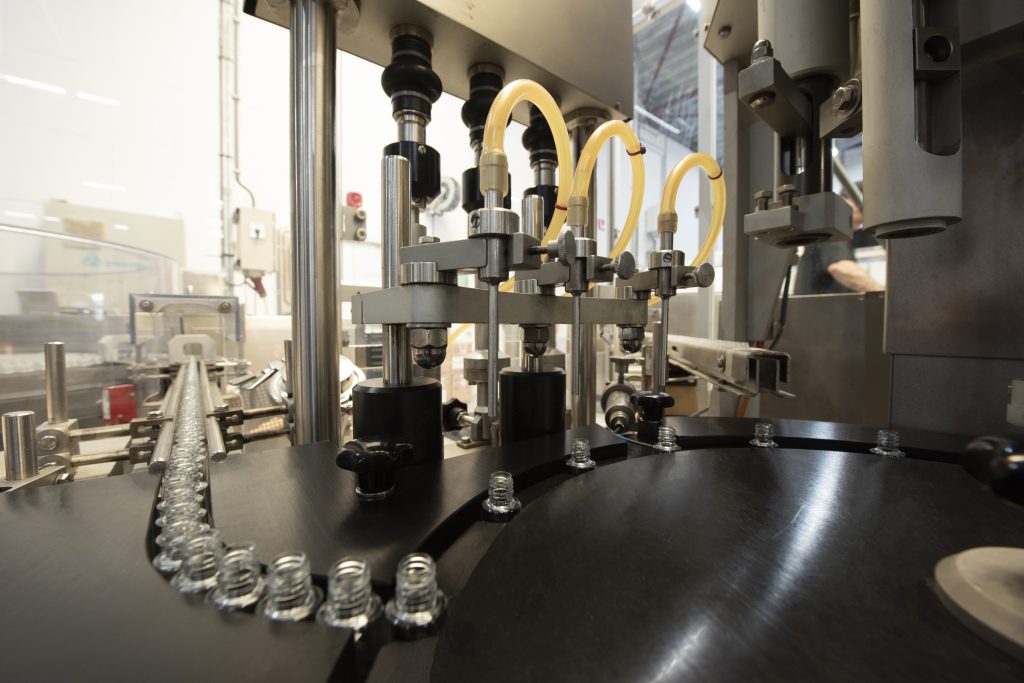 C.S. Lewis famously said, “Two heads are better than one, not because either is infallible but because they are unlikely to go wrong in the same direction.” Hardy said that when a company is purchased by Plxsur, the management teams stay in place for a period, and Plxsur management has candid conversations about long-term needs and goals. Most of the entrepreneurs that join Plxsur enjoy being part of the larger group and the personal development that comes with being surrounded by successful, like-minded leaders.
C.S. Lewis famously said, “Two heads are better than one, not because either is infallible but because they are unlikely to go wrong in the same direction.” Hardy said that when a company is purchased by Plxsur, the management teams stay in place for a period, and Plxsur management has candid conversations about long-term needs and goals. Most of the entrepreneurs that join Plxsur enjoy being part of the larger group and the personal development that comes with being surrounded by successful, like-minded leaders.
“One of the first things we do when we’re onboarding the businesses—which I titled ‘The First 100 Days’—is doing a capability review of the talent in the organization and pinpointing where we believe we can improve their capabilities. We work with the principals and the management teams to recruit leadership,” he said. “Hale, for example, the largest vaping company in Ireland, was working with us and recently appointed Andy McCue, the ex-CEO of Paddy Power, as their nonexecutive chairman. With our support, they also appointed Simon Carroll, who was the country manager in Ireland for British American Tobacco. We’ve been able to identify talent and support the companies in terms of building their capability through Plxsur leadership’s experience and industry resources.”
The Irish market also provides a strong example of how Plxsur standards can be greater than the market standards where a given entity is doing business. Ireland only recently placed age restrictions on vaping product purchases. And from a Hale perspective, when considering Plxsur standards, restricting youth access is one of Plxsur base-level standards that is put in place to ensure that whether someone is a direct-to-consumer in e-commerce or a retail environment, there is a strong age verification in place.
“We’re educating retailers because the weak point in preventing youth purchases is educating retailers to ensure that they have those age verification processes in place. Ireland’s a great market where from a government perspective, it’s supportive of the role vaping plays in tobacco harm reduction. It’s playing a positive role in public health as it is in the U.K.,” said Hardy. “Yes, there are still issues with product compliance and age verification. Youth access is still a challenge. But it’s the enforcement of that that’s important. Across all our markets that we’re operating, we’re setting the Plxsur standard in terms of restricting youth access but also ensuring that we’re working with all retailers to ensure that they are aware of their responsibilities in terms of preventing youth access.”
Behind the Scenes
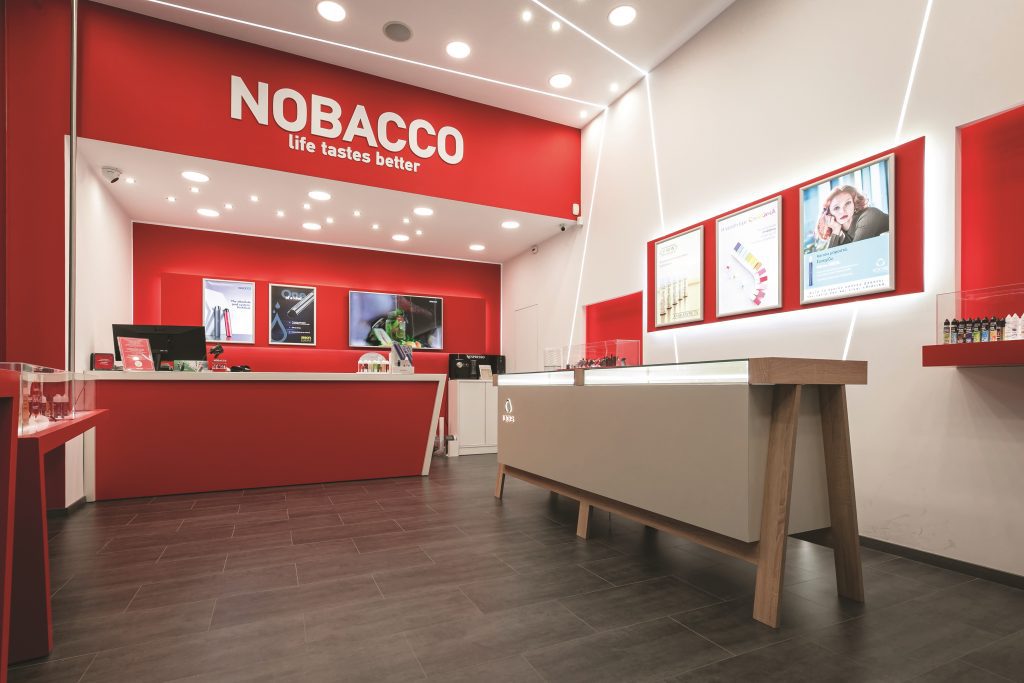 Along with compliance comes product safety. Plxsur has put in place a testing regime for every batch of e-liquid that is delivered by one of its companies to the marketplace. All the businesses that are part of the Plxsur team have a testing regime to ensure that products are compliant within their marketplace. Hardy said that taxes are also a force for good in the e-cigarette sector. In the Italian, German and Greek markets, where duty is evident, it drives public compliance because the penalties are linked to e-liquid volumes or concentrations of nicotine, according to Hardy.
Along with compliance comes product safety. Plxsur has put in place a testing regime for every batch of e-liquid that is delivered by one of its companies to the marketplace. All the businesses that are part of the Plxsur team have a testing regime to ensure that products are compliant within their marketplace. Hardy said that taxes are also a force for good in the e-cigarette sector. In the Italian, German and Greek markets, where duty is evident, it drives public compliance because the penalties are linked to e-liquid volumes or concentrations of nicotine, according to Hardy.
“If you are importing or distributing products that are not compliant, the penalties are significantly higher when they’re linked to tax revenues from a duty perspective. And that drives strong compliance across the market,” he said. “We were able to bolster that by putting our testing regime in place at the same time. We are manufacturing our liquids as well.”
At the moment, Plxsur has six e-liquid manufacturing facilities in six different markets. With that comes the quality management systems to ensure the quality of both the raw materials that are coming in and what’s going out. It’s not only about quality control (QC), but also about quality assurance. All e-liquids are manufactured in a minimum ISO 9001-certified facility with labs housed in an ISO Class 8 clean room. Plxsur’s QC program ensures that all products manufactured and distributed meet or exceed all regulatory and legislative requirements in the markets where the products are produced.
ISO 9001 is defined as the international standard that specifies requirements for a quality management system. Organizations use the standard to demonstrate the ability to consistently provide products and services that meet customer and regulatory requirements.
Plxsur only produces its brands of e-liquids. The company does not do third-party manufacturing because the company’s focus is on its products, according to Hardy. “We are only producing our brands because we’re so early in our development. There are opportunities in the future to look at consolidating our manufacturing. To be able to replicate a flavor profile from one manufacturing facility to another is challenging. So, unless we can see a real necessity and we’re manufacturing efficiently, we’re not going to rush into consolidating our supply chain footprint.”
Plxsur does not currently manufacture hardware. All of Plxsur’s partner businesses are empowered to have individual relationships with their suppliers; however, that could change in the future. Hardy said that Plxsur leadership can help management teams with the procurement processes; it can’t intervene in commercial negotiations between different companies.
“We must allow the management teams to continue to negotiate on their behalf. You kind of let these entities grow themself. Plxsur is more of a guiding light; when you have a challenge, we can go to this collective group, ‘How do we fix this challenge?’ We’re enablers,” said Hardy. “We built a team of experts that offer consultancy advice to all the management teams because what we want to do is keep that culture, that entrepreneurial culture and agility within the organizations.
“The worst thing we could do is suffocate that entrepreneurial spirit that’s there, and the best way to do that is to empower the management teams to be operating as a standalone business. Respect local. Local knowledge, local activation, local insight … those are the real strengths of what we’re doing. As soon as we start to, and I know this from my background, as soon as you start to integrate and consolidate and centralize, you lose that focus, and you lose the agility.”
Moving forward, the point of Plxsur is to help smokers quit combustible cigarettes. While the lofty goal of becoming the largest and most responsible group of independent vaping companies on the planet is achievable, Hardy said the company is just getting started. The company is placing a stronger focus on consumer insight, particularly in its direct-to-consumer businesses.
“The best marketers in the world today are data analysts. And when we have a platform, whether that be bricks-and-mortar or e-commerce, millions of data points allow us to understand the journey of vapers,” said Hardy. “What we can do is identify the future direction that those consumers are going in, and then populate that across the group.
“That starts with market size; the number of smokers and their propensity to switch. We can share that information across our group of companies and identify which is the best company to be able to service that need. We’re creating something quite novel but very exciting in terms of shaping the future of vaping.”